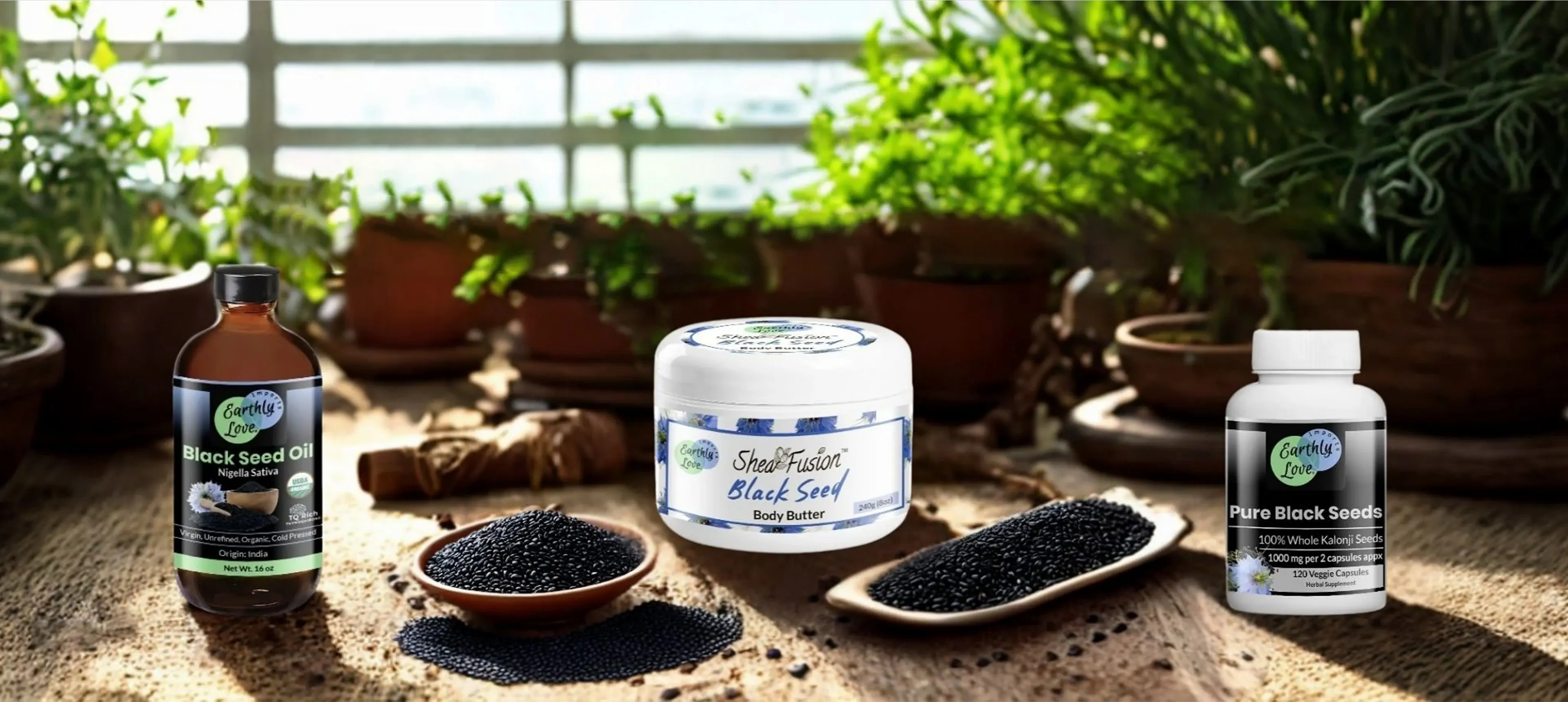Blog
Blog
La guía definitiva de lociones y humectantes naturales para una piel sana: Mantecas corporales
por Eli Family
en feb 09 2025
En el mundo del cuidado de la piel, los términos "manteca corporal" y "loción" a menudo se usan indistintamente, pero hay una sutil distinción que hace que la manteca corporal sea una opción destacada para quienes necesitan hidratación. De hecho, escribimos un artículo completo sobre las diferencias . Pero la esencia es esta: piense en la manteca corporal como una versión más rica y concentrada de la loción, a veces con ingredientes naturales y orgánicos para brindar una hidratación profunda y una nutrición duradera. Ayuda con la piel seca al priorizar las fórmulas no tóxicas. Es una excelente opción ecológica. La manteca corporal ofrece una solución de lujo. Vamos a explorar las mejores mantecas corporales (y lociones) naturales y orgánicas que también son superhéroes del cuidado de la piel, combinando pureza con rendimiento.
¿Por qué elegir manteca corporal en lugar de la loción tradicional?
La manteca corporal es esencialmente una loción más espesa diseñada para retener la hidratación. Mientras que las lociones comunes suelen ser ligeras y a base de agua, las mantecas corporales se basan en aceites y mantecas de origen vegetal (como karité, cacao o mango) como ingredientes principales. Esto las hace ideales para pieles secas, sensibles o maduras, ya que crean una barrera protectora que previene la pérdida de hidratación. Muchas mantecas corporales orgánicas, como la nuestra, también evitan los aditivos sintéticos, lo que las convierte en una opción más saludable para la piel y el medio ambiente.
Características de las mejores mantecas corporales naturales
Al comprar una manteca o loción corporal, priorice estas cualidades:
Ingredientes orgánicos, naturales y sin químicos : Asegúrese de que los ingredientes estén libres de pesticidas y químicos dañinos. Entre sus componentes clave se encuentran la manteca de karité, el aceite de coco y el aceite de jojoba, ricos en vitaminas y ácidos grasos.
Sin toxinas : Evite parabenos, ftalatos, fragancias sintéticas e ingredientes derivados del petróleo. Las fórmulas limpias son fundamentales para reducir la exposición a disruptores endocrinos y alérgenos.
Textura rica y absorción : Las mejores mantecas corporales se funden con la piel sin dejar residuos grasos. Las texturas cremosas con ingredientes como la caléndula o la manzanilla alivian la irritación, mientras que el ácido hialurónico o el aloe vera potencian la hidratación.
Sostenibilidad y ética : Apoye a las marcas que utilizan prácticas de comercio justo y pruebas libres de crueldad animal.
Cómo usar la manteca corporal y maximizar sus beneficios
Aplicar sobre la piel húmeda: retenga la humedad aplicando manteca corporal después de la ducha mientras la piel aún esté ligeramente húmeda.
Áreas secas en el punto de mira: concéntrese en los codos, las rodillas y los pies, donde la piel tiende a ser más gruesa y seca.
Capa con aceites: para una nutrición adicional, mezcle la manteca corporal con unas gotas de aceite de argán o de jojoba.
Rutina nocturna: use mantecas corporales más ricas antes de acostarse para permitir que los ingredientes se absorban durante la noche.
El auge del cuidado natural de la piel: por qué es importante no usar productos tóxicos
Las lociones convencionales suelen contener toxinas ocultas, como fragancias sintéticas, PEG y aceite mineral, que pueden alterar las hormonas o causar irritación. En cambio, las mantecas corporales naturales se basan en ingredientes vegetales que nutren sin sacrificar su calidad. Por ejemplo, la manteca de karité es rica en vitaminas A y E, que reparan y protegen la piel, mientras que el aceite de coco tiene propiedades antimicrobianas. Algunas marcas similares a Earthly Love Imports priorizan aún más la seguridad con fórmulas libres incluso de trazas de contaminantes.
En definitiva, la manteca corporal es tu mejor amiga
Es un regreso a la simplicidad, aprovechando el poder de los ingredientes botánicos para brindar una hidratación inigualable. Ya sea que optes por una loción económica o una manteca orgánica de lujo, priorizar los ingredientes naturales garantiza que tu piel se mantenga sana y libre de químicos dañinos. Explora las opciones de nuestra colección de mantecas corporales para encontrar la perfecta, y recuerda: Ama el cuerpo que tienes .
Explora hoy nuestra colección seleccionada de lociones y mantecas corporales naturales: tu piel merece nada menos que un cuidado puro a base de plantas.
Blog
Manteca corporal vs. loción: las diferencias clave para un cuidado óptimo de la piel
por Eli Family
en feb 06 2025
Al explorar el mundo del cuidado de la piel, la diferencia entre una manteca corporal y una loción suele generar confusión. Si bien ambas tienen como objetivo hidratar, sus fórmulas, texturas y beneficios se adaptan a las necesidades específicas de la piel. Este artículo consolida las diferencias entre estos productos, centrándose en ingredientes populares como la manteca de karité para ayudarte a tomar decisiones informadas. Además, al comparar una manteca corporal con una crema hidratante, piénsalo así: el término "humectante" es un tipo de clasificación. Cualquier producto que humedezca el cutis es un humectante.
1. Composición y textura: la base de la hidratación
La manteca corporal es un producto rico y denso, compuesto principalmente de aceites y mantecas naturales (p. ej., manteca de karité, cacao o mango), con un contenido mínimo de agua. Su consistencia espesa crea una barrera protectora en la piel, ideal para retener la hidratación y combatir la sequedad extrema. Por ejemplo, la manteca de karité, derivada de las nueces del árbol africano de karité, es apreciada por su textura cremosa y su alto contenido en vitaminas A y E, que alivian la inflamación y promueven la elasticidad.
En cambio, la loción corporal es a base de agua, mezclada con aceites más ligeros y humectantes como la glicerina. Su textura fluida permite una rápida absorción, lo que la hace adecuada para el uso diario y para pieles grasas o mixtas.
¿Sabías? Puede Combine mantecas corporales con diferentes tipos de bases o incluso aceites esenciales por su fragancia y beneficios.
2. Absorción e hidratación: momento y eficacia
La lenta absorción de la manteca corporal garantiza una hidratación duradera, a menudo recomendada para rutinas nocturnas o climas extremos. Sus propiedades oclusivas protegen la piel de los factores ambientales estresantes, como el viento frío o la calefacción seca en interiores.
Sin embargo, las lociones penetran la piel más rápido debido a su mayor contenido de agua. Proporcionan una hidratación inmediata pero más ligera, ideal para ambientes húmedos o para uso diurno. Productos como los de karité... Loción corporal que equilibra la hidratación sin dejar sensación grasosa, ideal para quienes buscan una opción no comedogénica.
3. Adecuación del tipo de piel: productos adecuados a las necesidades
Piel seca o madura : La manteca corporal es ideal en este caso. Las propiedades antiinflamatorias del karité calman el eczema y la psoriasis.
Piel grasa o con tendencia acneica : Es preferible usar lociones. Las lociones de karité, en dosis moderadas, hidratan sin obstruir los poros, mientras que la densidad de otra base puede agravar los brotes si se abusa de ella.
Piel sensible : Las lociones de karité sin refinar, libres de aditivos sintéticos, ofrecen una nutrición suave.
4. Consideraciones estacionales y climáticas
Climas invernales/secos : La barrera oclusiva de la manteca corporal previene la pérdida de hidratación. Productos como la loción o cremas corporales de karité crudo son ideales para talones o codos agrietados.
Climas húmedos/veraniegos : Las lociones ligeras previenen el exceso de grasa. Las mezclas de manteca de mango, de rápida absorción, son excelentes para climas cálidos.
5. Capas para obtener los máximos beneficios
Para pieles mixtas o extremadamente secas, aplicar ambos productos en capas puede optimizar los resultados:
Aplique loción después de la ducha sobre la piel húmeda para una hidratación profunda.
Continúe con manteca corporal en las áreas problemáticas (por ejemplo, rodillas, codos) para sellar la humedad.
Preguntas frecuentes: Cómo responder consultas comunes
¿Puedo mezclar karité? ¡Sí! Combinarlo puede mejorar la hidratación y los beneficios antioxidantes.
¿La manteca corporal es grasosa? Al principio puede sentirse más pesado, pero las fórmulas de alta calidad (por ejemplo, manteca de karité batida) se absorben de manera eficiente.
¿Qué es mejor para el antienvejecimiento? Las vitaminas A y E del karité combaten los radicales libres.
Básicamente
Elegir entre manteca corporal y loción depende de tu tipo de piel, clima y objetivos de hidratación. La manteca corporal enriquecida con karité ofrece una reparación intensiva para la piel seca o dañada, mientras que las lociones ofrecen un cuidado versátil y ligero. Al comprender sus diferencias y combinarlas ocasionalmente, puedes crear una rutina de cuidado de la piel perfecta para ti. Para obtener asesoramiento personalizado, consulta con un dermatólogo para tratar problemas específicos como el eccema o el acné.


